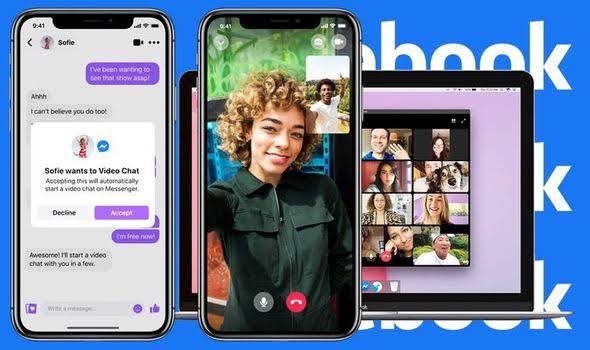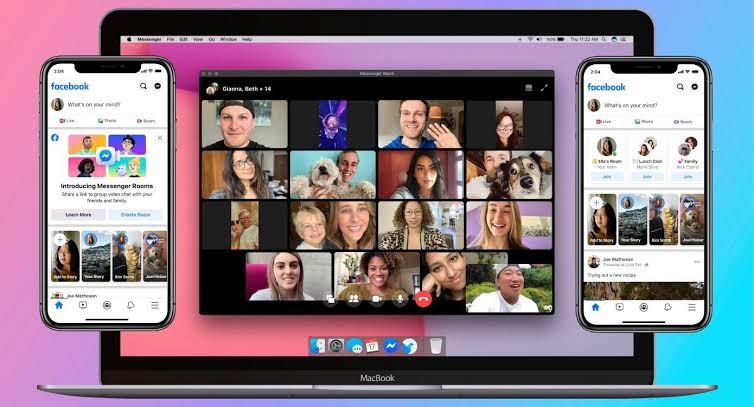Facebook Rivals Zoom Video Conferencing App, Launches Messenger Rooms For Unlimited Video Calls With Up To 50 People
Social media giant Facebook has announced a new feature called Messenger Rooms aimed at connecting up to 50 people via video-call.
A number of people have turned to video conferencing to keep up with work, school, family, friends and social activities during Coronavirus lockdowns being observed in various part of the world.
CEO Mark Zuckerberg in a livestreamed announcement on Friday stated that the ability to connect over live video has “emerged as especially important during this pandemic.”
He said;
Beyond video conferencing for work, there are even more social uses of this, just for people to stay connected.
The new feature allows anyone with a Facebook account to create a video meeting and invite their friends to join, even if those people are not Facebook users.
Away from connecting people, the new Facebook feature appears to have been released as a new competition to another booming video-call app, Zoom.
Zoom has become wildly popular, with over 300 million people now participating in meetings on its platform every day.
However, Zoom was recently plagued with “Zoombombing” attacks where unwanted intruders have disrupted video meetings with pornography, racist harassment and poor cybersecurity.
Facebook has however leveraged its much broader audience and adequate cybersecurity to release the new Messenger Rooms feature.
According to the company, it has seen surging use of its two messaging apps, Messenger and WhatsApp, with more than 700 million people making voice or video calls every day.
Messenger Rooms looks similar to Zoom and functions in much the same way.
Participants can join without downloading an app and it also mirrors elements of a popular video app ‘Houseparty’ as Facebook users gets notified about new “rooms” created by their friends with an option to join in.
The company said Messenger Rooms will have default settings to protect meetings from intruders. This is unlike Zoom’s security challenge.
People who create the rooms can control who is allowed to join and they can make a room open to anyone they are friends with on Facebook, or they can invite specific people.
Hosts can also create a link to invite people who are not on Facebook. Those links are less secure, as recipients could share them with others, who could then join rooms.
Facebook will not require passwords to join, as the platform said it is reducing the potential for abuse by allowing hosts to “lock” rooms so that no new participants can join. And if a host removes someone, the room automatically locks.
Facebook will roll out Messenger Rooms worldwide over the next few weeks.


